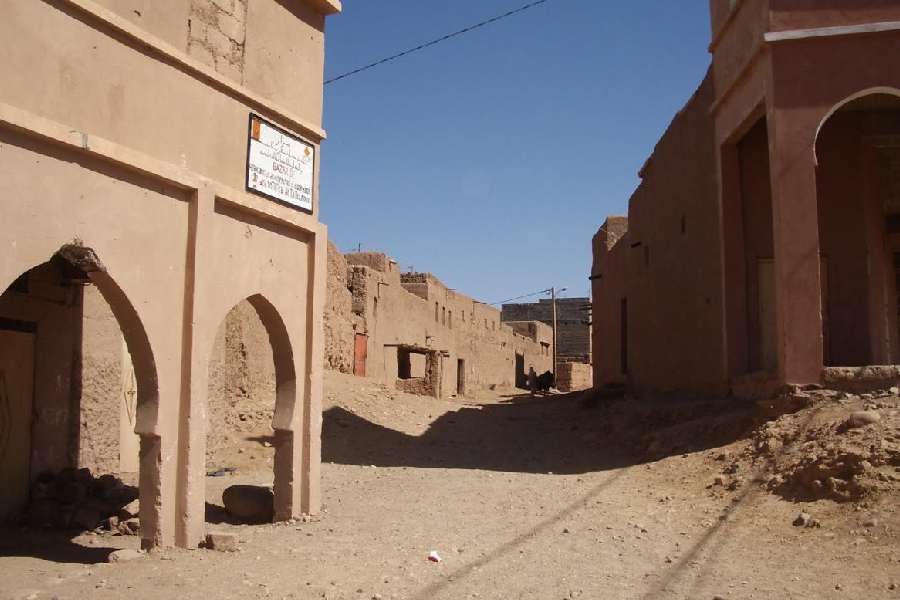Book: A RETURN TO SELF: EXCURSIONS IN EXILE
Author: Aatish Taseer
Published by: Fourth Estate
Price: Rs 499
A Return to Self attempts to incorporate the liminal as it gathers eight travel essays, written after the Indian government revoked Aatish Taseer’s Overseas Citizenship in 2019 — an act he claims was retribution for his Time article on… You Know Who. These journeys range through Turkey, Uzbekistan, Morocco, al-Andalus, Mexico, Sri Lanka, Bolivia and Mongolia, before ending in Iraq while ruminating on ancient Shiite rituals of mourning.
Taseer frames his journalism as pilgrimage: a recovery of “ur-travel”, as he calls it, reimagining forgotten civilisations and cultures in deliberate contrast to the gift-wrapped historicity of modern tourism. The prose is rich in literary quips, historical information, and sensory detail: the scent of oudh, recalled from childhood, unfolds into an elegant excursus on perfumes in the Indo-Persianate world. His sentences carry a clear yearning, the desire to unearth artefacts through etymologies, memories through palimpsests and self-seeking excursions. Yet, the exile he describes feels less like a trauma resiliently endured than a vantage curated: one that grants him entry into the world of postcolonial elites, where, despite ample quotations from Edward Said on Orientalism, absence is less of a condition than an aesthetic.
At times, Taseer edges into narcissism as the distinction between his homelessness as a world-travelling Indian exile living in the United States of America and the dispossession of those he meets blurs uncomfortably. In Istanbul, he sets his own exile beside that of Ibrahim, a Syrian refugee eking out a precarious life in Turkey. Ibrahim, once tortured under Assad, now lives in constant fear of the “red police” or “Erdogan’s sons”, vigilantes who could make him, his wife, or their daughter disappear. The juxtaposition is strained by its setting: Taseer arrives in Istanbul after a sojourn at a Bulgarian hunting lodge, dining with a man who was both king and prime minister of Bulgaria, his estates restored after communism’s fall, their conversation drifting from Wallis Simpson and Edward VIII to the farts of the Shah of Iran’s horses. Taseer finds it important to observe that his then-girlfriend’s parents were minor English royals, whose connections secured a suite at a luxury hotel on Taksim Square, owned by one of Turkey’s richest families. The same visit includes Taseer’s reunion with a Marxist student, now a metalworker, with whom he attempts to reclaim a camaraderie of the secular elite as they watch the newly faithful gather before sunset prayer outside the Hagia Sophia — reconverted into a mosque by Erdogan in 2020, surprising even hardcore Islamicists.
Elsewhere, in M’Hamid, a Moroccan border town, Taseer confronts the emptiness of the Sahara desert in the night and finds himself, almost unconsciously, praying. In Tamegroute, an elderly librarian shows him medieval Al Quran manuscripts inscribed on gazelle skin and a book of Pythagoras written in Arabic — traces of ancient knowledge criss-crossing forgotten routes across the desert for millennia. But the gaze shifts elsewhere, in “one last surreal turn”, to a dinner in Taroudant with Farah Pahlavi, “shahbanu-in-exile”, the last Empress of Iran. Despite his counter-cultural dishevelment — “filthy and unshaven, with scarcely a clean T-shirt let alone a jacket or formal shoes” — Taseer attends with the reverence of a raj-era Indian subject appearing before royalty, stroking Mowgli, “Her Majesty’s” King Charles spaniel, and conversing on “exile and revolution and elites pushed out of countries that were changing too fast”. Over a table of Persian rice, the former Empress confides: “In exile, food becomes important.”
After the party, as speakers in Taroudant fall silent and the Arabic remixes of “Bella Ciao” fade away into the desert, Taseer recalls the emptiness he had felt in M’Hamid, a moment he elevates into revelation. But why this veneration of pedigree, this careful burnishing of royal sorrow?
The Empress’s observation appears shockingly obscene against the backdrop of unspoken poverty in all these ancient lands Taseer seeks understanding of; more so when it is later reiterated as a metaphor for Mexico’s exile from its pre-Hispanic past. In Oaxaca, Taseer explores indigenous food at restaurants and marvels at the
history of horchata with the unadulterated wonder of a Bengali tourist discovering bhaati chaar in Darjeeling.
What lingers is not the precarious dignity of those who continue to live on thresholds but the strangeness surrounding what remains unseen to the elites and perhaps will remain forever so: the lived lives of exiles and refugees fleeing war, extreme poverty, and the sheer cruelty of power in the global South. To put it politely, the book aches with the vocabulary of memory and loss but offers no empathy to the voices it most needed to dwell on — those of the Syrian refugees, Turkish metalworkers, Sri Lankan lotus farmers, indigenous corn cultivators of Oaxaca, the librarians of forgotten Saharan towns. They remain spectral, flickering at the margins, before the gaze drifts back, inevitably, to a self-pity polished into melancholy, like privilege oblivious of the dispossessed.










